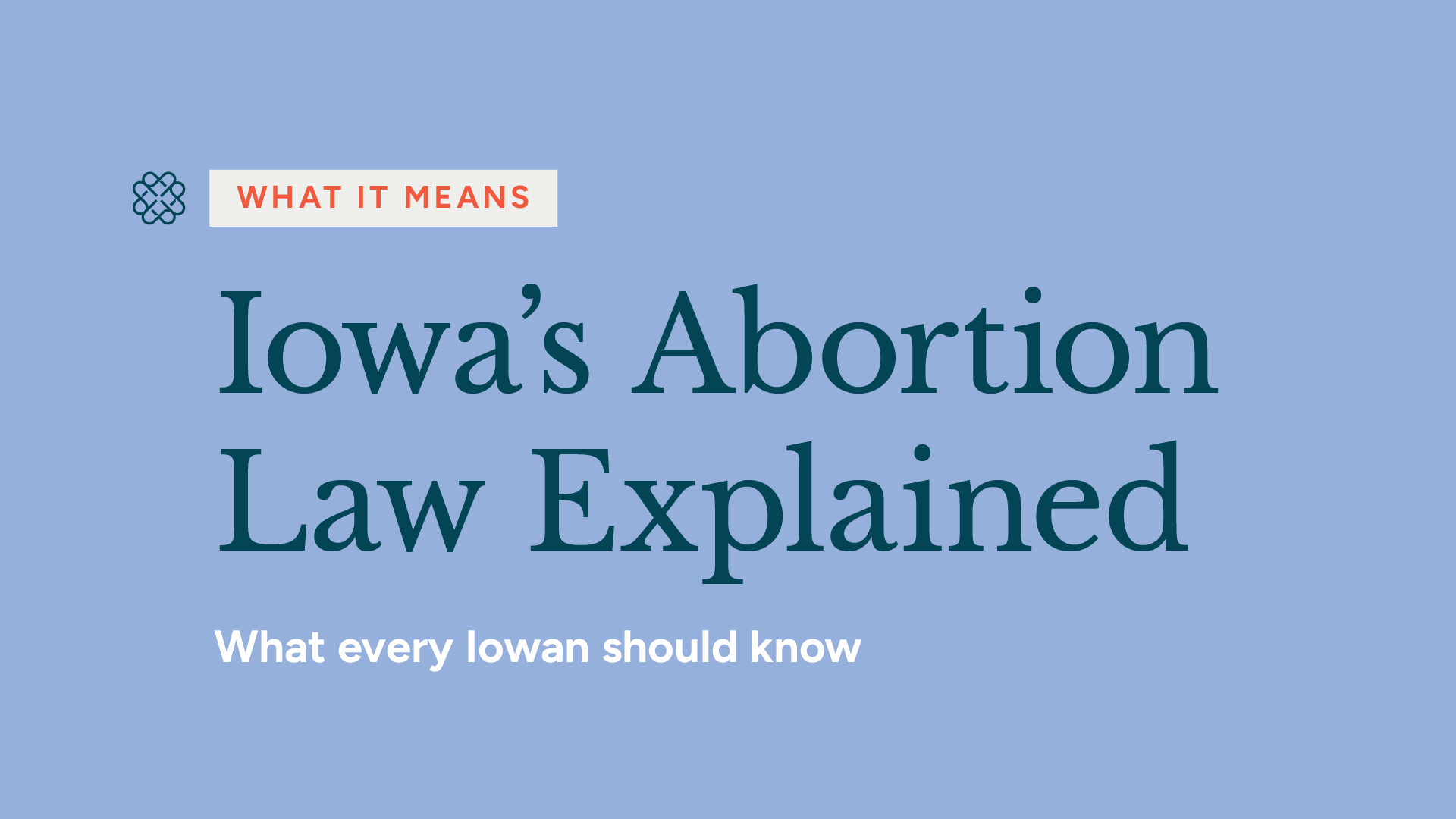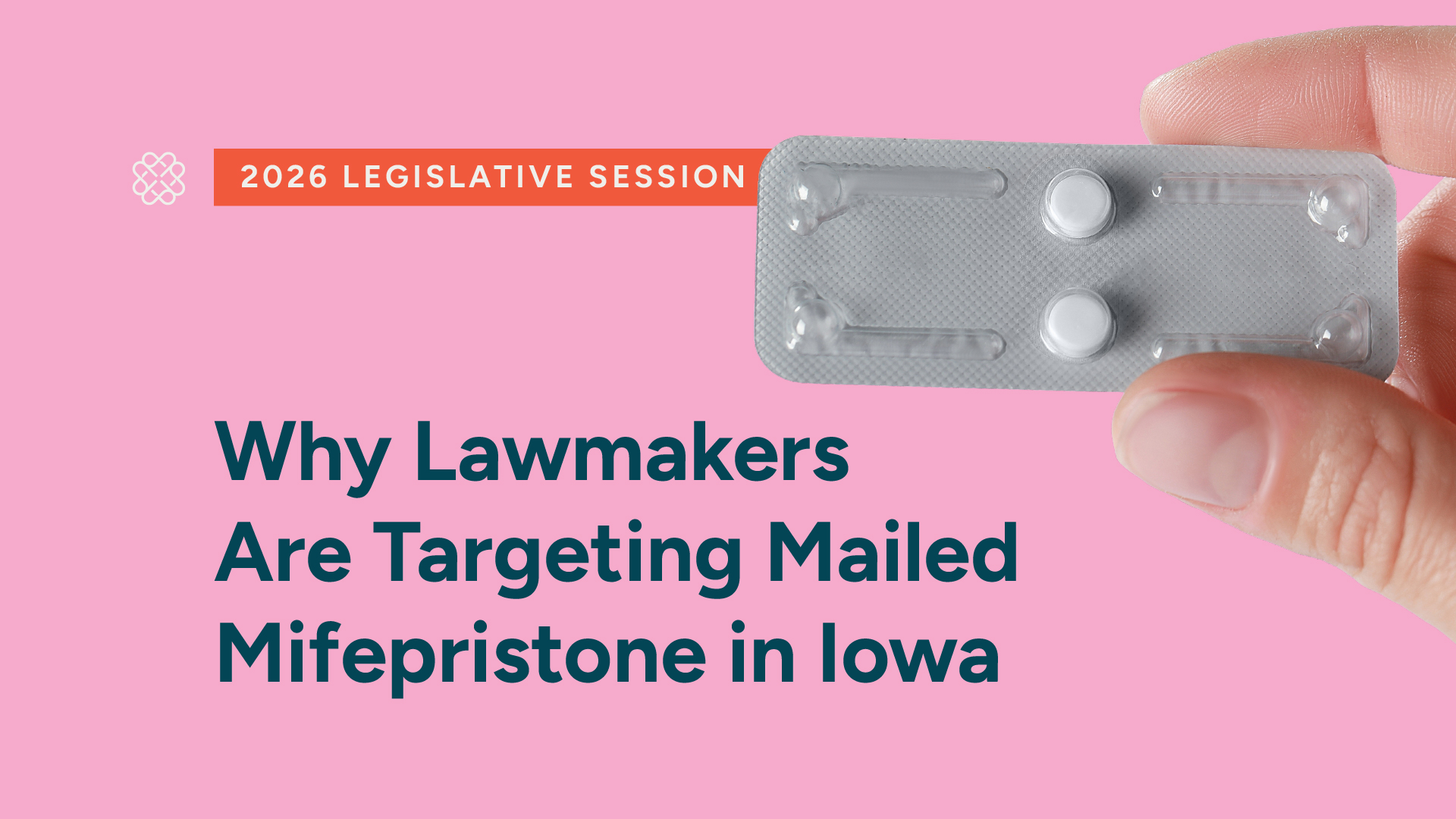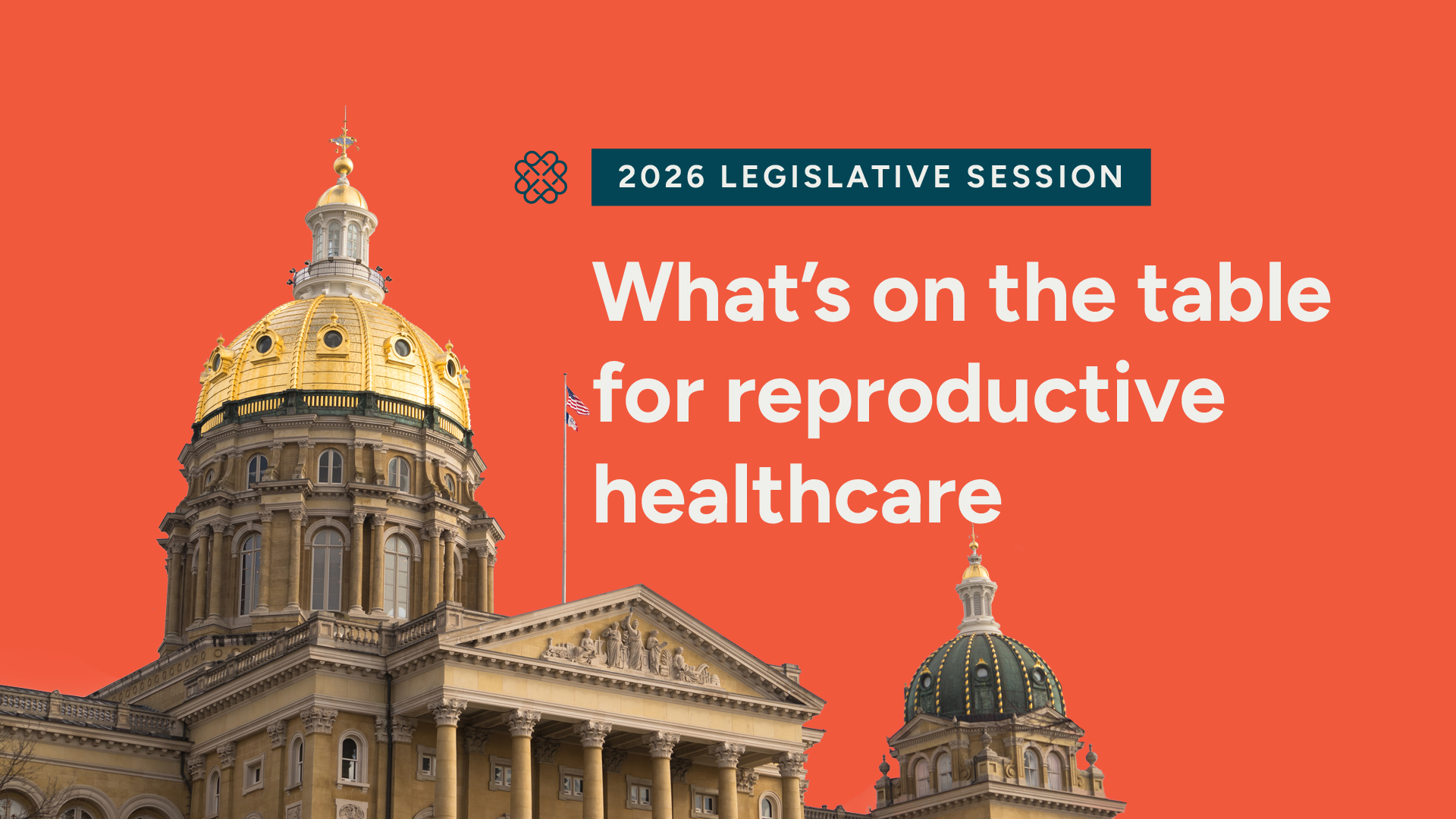
Iowa’s reproductive health laws have changed dramatically, leaving many Iowans uncertain about what’s legal, what’s restricted, and where to go for accurate, up-to-date information. This article breaks down the facts behind Iowa’s 6-week abortion ban, how we got here, and what it means for reproductive healthcare access across the state.
How did we get here?
In 2018, Iowa passed one of the most restrictive abortion laws in the country, banning abortion once cardiac activity is detected, typically around six weeks of pregnancy. The law was blocked by the courts for years.
But after the 2022 Dobbs v. Jackson Women’s Health Organization decision overturned Roe v. Wade, Iowa officials pushed to reinstate the law.
- June 28, 2024: The Iowa Supreme Court lifted the injunction on the 6-week ban
- July 29, 2024: The law began being enforced statewide
The result? A rapidly shifting legal landscape that’s left both patients and providers confused and concerned.
What does the 6-week ban actually do?

Under current Iowa abortion law:
- Abortion is banned once fetal cardiac activity is detected, typically around 6 weeks of gestation.
- Exceptions are allowed, but only under strict conditions:
- Rape, if reported within 45 days
- Incest, if reported within 140 days
- Fetal abnormality incompatible with life
- Medical emergency threatening the life or major bodily function of the pregnant person
- Patients must comply with a 24-hour mandatory waiting period and state-mandated informed consent
Iowa’s abortion law also includes additional requirements before care can be provided. Patients must first attend an appointment to receive state-mandated information about abortion, then wait at least 24 hours before the procedure can take place. In practice, this often means two separate clinic visits, adding travel time, missed work, and extra costs. Iowa law also requires providers to read a state-written script that includes medical facts, risks, and alternatives to abortion. This limits how doctors can speak with patients and can include information that is medically unnecessary or misleading.
Importantly, the law does not criminalize patients seeking abortions. Instead, it places enforcement power in the hands of the Iowa Board of Medicine, which can investigate, reprimand, or revoke the licenses of physicians who perform abortions outside these strict guidelines.
Why 6 weeks is so restrictive
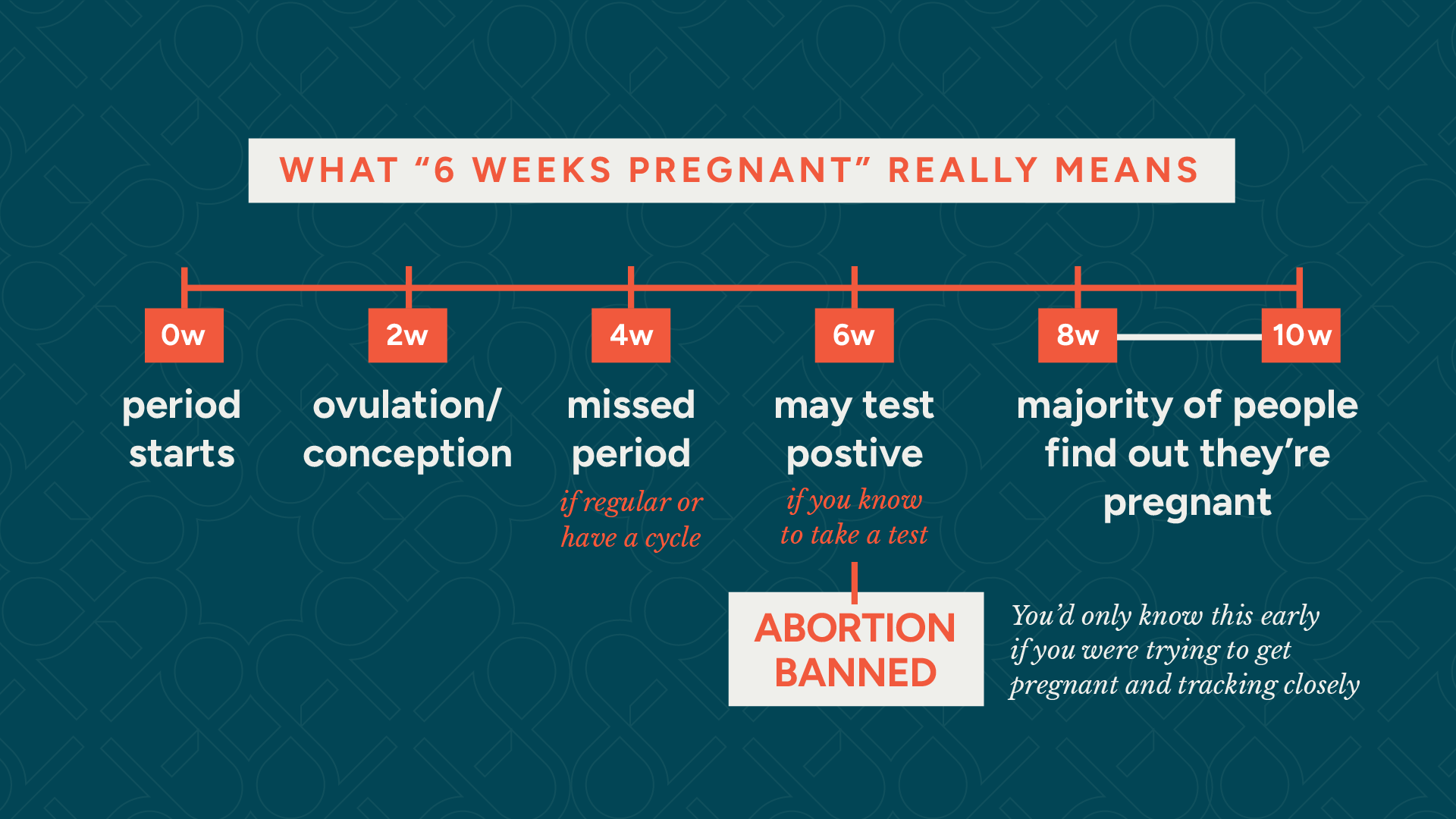
Medically speaking, pregnancy is measured from the first day of a person’s last menstrual period, not from conception.
So being “6 weeks pregnant” usually means someone is just 2 weeks past a missed period, often before many people even realize they’re pregnant.
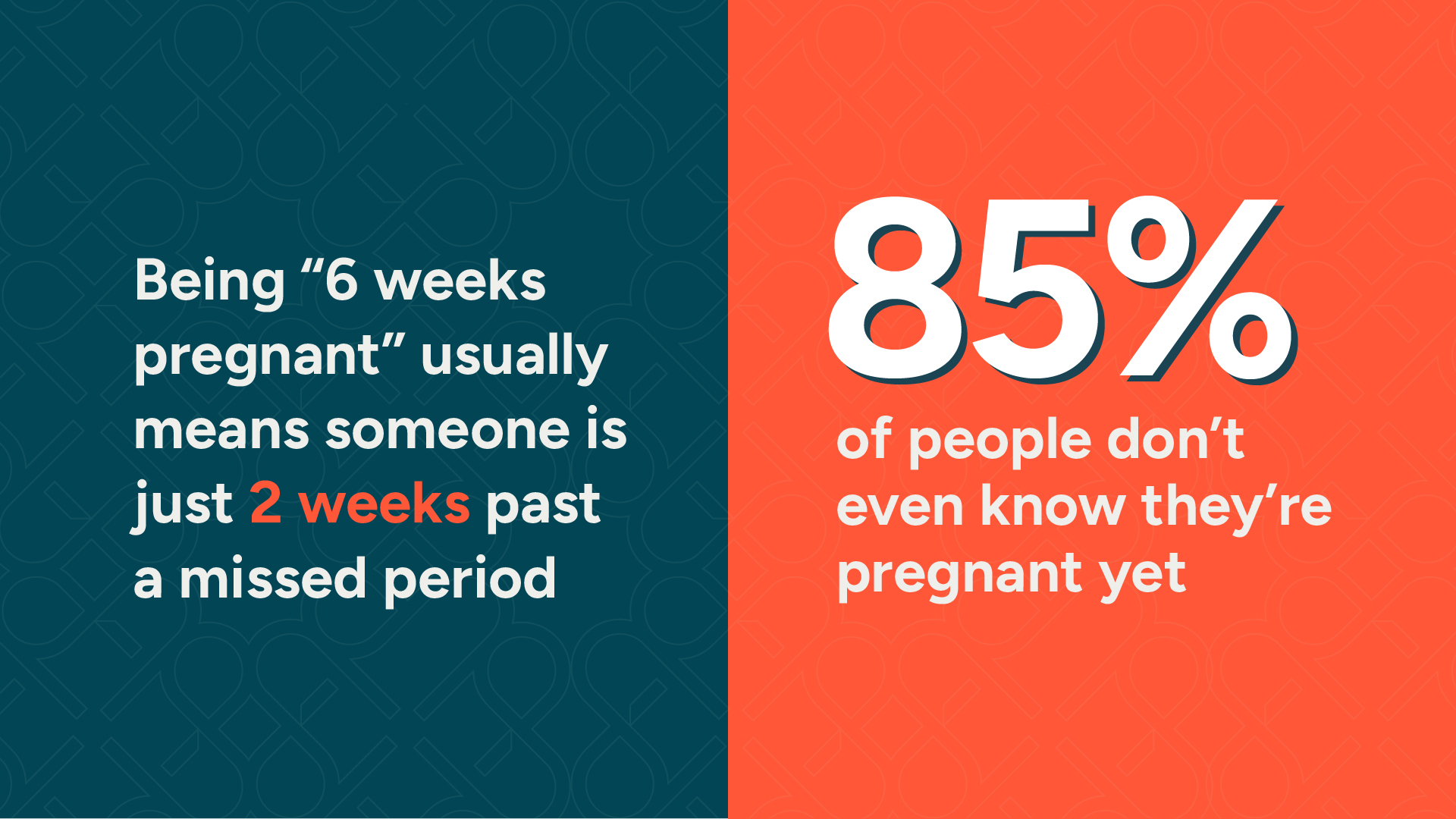
The reality is that this law is a near-total abortion ban. It’s nearly impossible for most Iowans to:
- Confirm pregnancy
- Make a decision
- Schedule a provider visit
- Fulfill informed consent
- Wait 24 hours
- …all before hitting that 6-week cutoff
What’s happening across Iowa
The impacts of this abortion ban are already reshaping reproductive healthcare in Iowa:
- Patients are traveling out of state to Illinois, Minnesota, or beyond for time-sensitive abortion care. This is an increased burden for Iowans who have to miss work and pay out of pocket for travel and lodging costs.
- Women's healthcare centers are closing, especially in rural counties. As of 2024, 57% of Iowa counties lack obstetric services.
- Doctors are afraid to act, worried their medical decisions will be second-guessed by the state’s Board of Medicine, inadvertently putting women’s lives at risk.
- Access to women’s healthcare clinics and doctors is shrinking, making it harder for Iowans to get care for pregnancy, contraception, and gynecologic conditions.
What’s still legal in Iowa?

Despite the ban, many forms of reproductive care are still protected:
- Abortion is still legal before 6 weeks gestation
- Emergency contraception (Plan B) and birth control, including IUDs (a form of birth control) remain legal and available
- Out-of-state abortion care is legal, though it can be expensive and difficult to access
- Reproductive healthcare services like STI testing, birth control, prenatal care, and cancer screenings are still available but access varies widely by location
Why this matters
When access to abortion is restricted, entire healthcare systems suffer and so do patients. Delays in miscarriage or ectopic pregnancy care have already been reported.
Hospitals and physicians are being forced to weigh medical judgment against legal risk.
At its core, reproductive healthcare is about patient autonomy, the right to make decisions in consultation with a trusted provider, not under threat of government oversight.
Iowa’s reproductive healthcare laws are changing fast. Understanding your rights and sharing factual, nonpartisan information helps protect access and save lives.
Learn More. Stay Informed. Share Widely.
Sign up for trusted resources, updates, and stories from real Iowans.
Share this article to help more Iowans understand what’s happening and what’s at stake.
This article was compiled using sources including the Guttmacher Institute, ACLU of Iowa, and official state records. Content is intended for informational purposes only and does not constitute legal advice. Please refer to licensed legal professionals for interpretation of current law.
Source links
For more reproductive rights information and updates on Iowa healthcare access, visit our resources page or sign up for our newsletter.
Empower change.
Sign up for our newsletter and stay informed on reproductive healthcare issues in Iowa.

